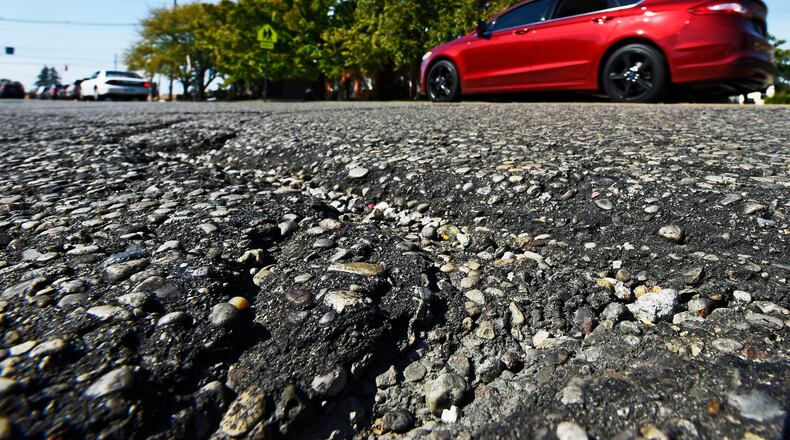The proposed levy would expire after 10 years and before then would generate nearly $3.9 million per year. It would allow the city to repair an additional 5 miles of streets, while maintaining another 5 miles. The levy would cost the owner of a $100,000 home about $171.50 per year.
“Currently, 70 percent of the city’s streets are in fair to poor condition, with 50 percent of the city’s streets rated as poor,” city Finance Director Dave Jones wrote in a report to council.
The all-volunteer committee known as Citizens for Hamilton, which is working for the levy’s passage, will host four meetings in early December to answer questions from the public. Each meeting will be from 6:30 to 7:30 at the following locations:
- Dec. 3 at Highland Elementary School, 1125 Main St.
Troy Schwable, a leader of Citizens for Hamilton, said the organization and city officials will be at each meeting to answer questions about the levy. Citizens for Hamilton will provide answers about itself and its goals. City officials can discuss city finances and other aspects of the levy. Also, officials will be able to answer engineering questions, such as why potholes happen and other technical aspects of road repair.
Mayor Pat Moeller after Wednesday’s meeting expressed hope the levy would pass.
“When I bring it to people, and I mention the fact there’s a (10-year) sunset provision, they seem to be good about the sunset provision,” Moeller said. “When I mention if it passed, it will be in the neighborhoods as well as on major streets, people seem to like that.”
“But there’s more work to do,” he said. “We all need to be educated more about what this is going to be.”
“We need to listen to the citizens, and we all need to educate each other about what this is going to be like,” Moeller said. “We should have enough months that this should be able to be discussed, and people can then make an educated decision in May.”
About the Author
